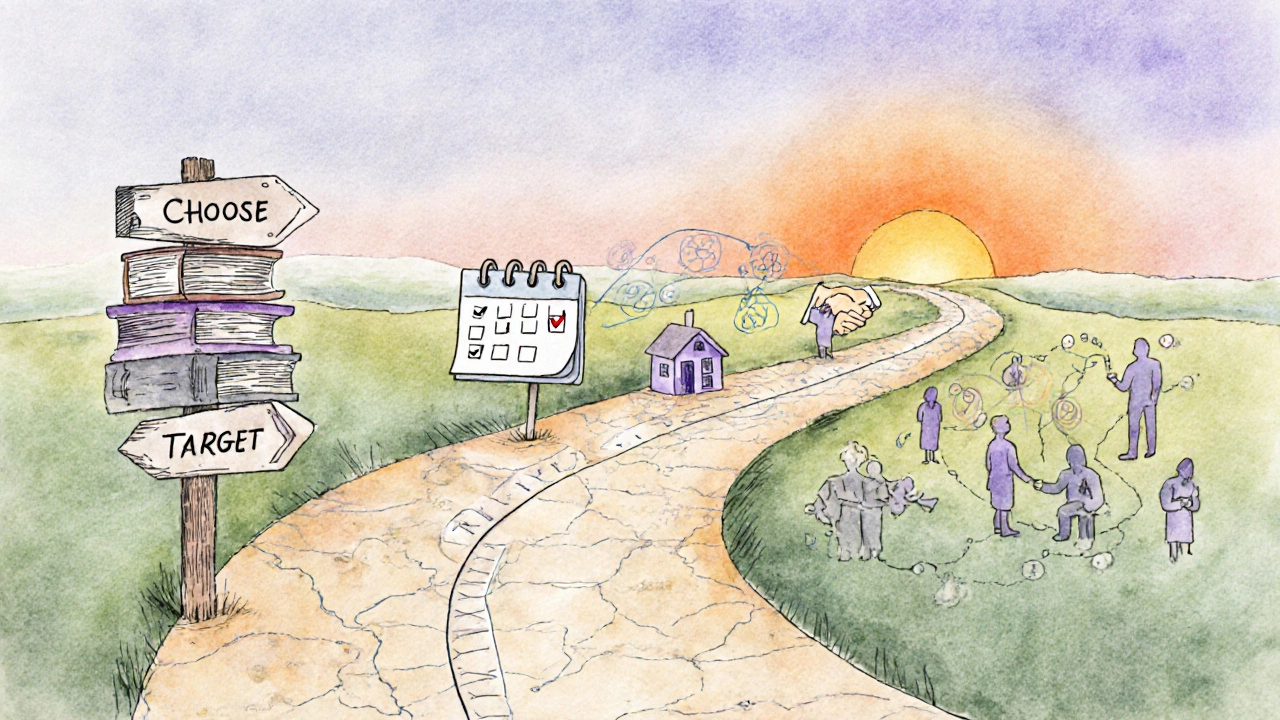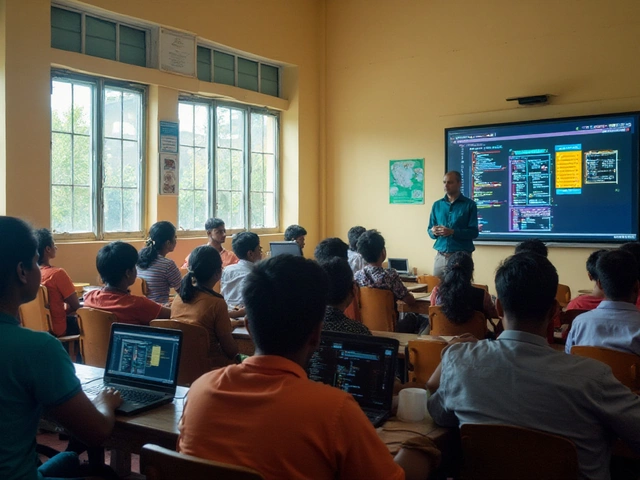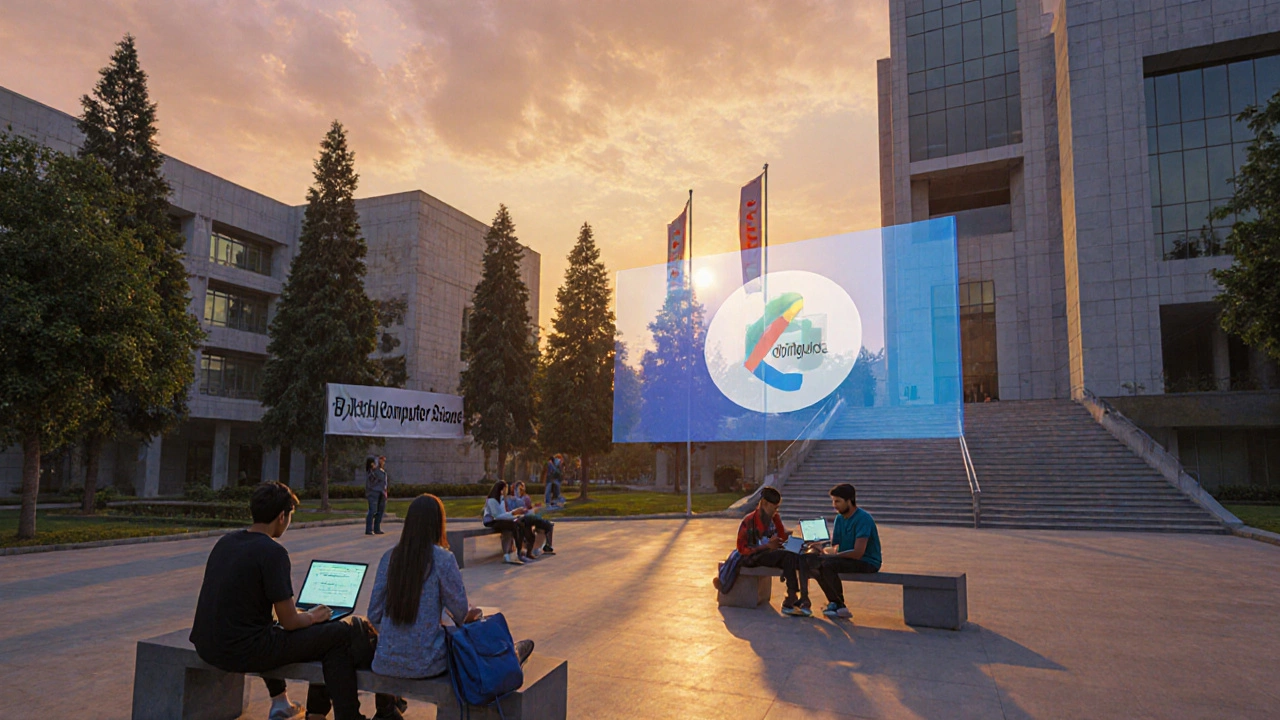India’s #1 Course: Why IIT’s B.Tech Leads the Pack (2025 Guide)
Course Selection Calculator
Compare Your Top 3 Courses
Find which course aligns best with your priorities based on employability, salary, industry demand, and entrance difficulty.
Your Recommended Course
Key Takeaways
- The most widely recognized #1 course in India is the B.Tech in Computer Science offered by the Indian Institutes of Technology (IIT).
- Ranking is based on employability, average salary, industry demand, and the rigor of the entrance exam.
- Other elite programs-AIIMS MBBS and ISB MBA-rank just behind for specific career tracks.
- Success hinges on mastering the entrance exams (JEE Advanced, NEET, CAT) and building a strong academic profile.
- Clear step‑by‑step action plans help aspirants navigate admission, financing, and early‑career moves.
What Makes a Course the "No1" in India?
People ask “which is No1 course in India?” because they want a clear signal about future earnings, job security, and prestige. To answer that, we need a framework that looks at four pillars:
- Employability: How quickly graduates land jobs in high‑growth sectors.
- Average Salary: Real‑world compensation data from reliable salary surveys.
- Industry Demand: Number of openings, growth rate of the relevant field, and the sector’s contribution to GDP.
- Entrance Rigor & Selectivity: Difficulty of the admission test and the caliber of the student body.
When those pillars line up, the course earns the de‑facto title of the country’s top program.
Methodology Behind the Ranking
Our ranking combines data from the Ministry of Education, industry reports (NASSCOM, AIIMS annual review, ISB placement stats), and independent salary platforms like Payscale and Glassdoor. Each pillar receives a weight-Employability (35%), Salary (30%), Demand (20%), Selectivity (15%). Scores are normalized on a 0‑100 scale, then summed to produce a final ranking.
Here’s the quick snapshot:
- B.Tech in Computer Science (IIT) - Score: 96
- MBBS (AIIMS) - Score: 92
- MBA (ISB) - Score: 88

Why IIT’s B.Tech in Computer Science Beats All Rivals
B.Tech in Computer Science (IIT) is a four‑year undergraduate engineering degree offered by the Indian Institutes of Technology, widely regarded as the country’s premier technical program. The reasons are concrete:
- Employment Rate: 98% of graduates secure a job within six months, according to the 2024 IIT Alumni Survey.
- Salary Premium: The median first‑year salary in 2025 is INR22lakhs, dwarfing the national average for engineering graduates (INR7lakhs).
- Industry Pull: Tech giants-Google, Microsoft, Amazon-run campus drives every year, reserving over 2,000 offers across the eight IIT campuses.
- Selection Challenge: The JEE Advanced exam (see below) has a success rate of less than 1%, ensuring the cohort is among the brightest minds in the country.
Because the program combines rigorous academics with extensive industry exposure, it consistently tops the ranking.
Other Elite Courses Worth Mentioning
While IIT B.Tech leads the overall list, two other courses dominate in their own domains.
AIIMS MBBS - The Gold Standard for Medicine
MBBS (AIIMS) is a five‑year medical degree offered by the All India Institute of Medical Sciences, considered the premier medical school in India.
- Employment: 95% placement in top hospitals or research institutes within a year.
- Median Salary: INR12lakhs per annum for fresh consultants (2025 data).
- Demand: India needs 1.5million doctors; AIIMS graduates fill critical specialty gaps.
- Selectivity: The NEET exam admits fewer than 5,000 students from a pool of 2million applicants.
ISB MBA - The Business Leader’s Fast‑Track
MBA (ISB) is a one‑year post‑graduate management program run by the Indian School of Business, known for its strong industry connections and global faculty.
- Employment: 97% of graduates receive offers within three months, with a strong presence in consulting and finance.
- Median Salary: INR35lakhs (US$45,000) first‑year package, according to the 2025 ISB placement report.
- Demand: The Indian corporate sector expects 300,000 new managers annually; ISB supplies high‑impact talent.
- Selectivity: CAT scores above 99 percentile are typical; the acceptance rate hovers around 12%.
Entrance Exams - The Gateways
Understanding the exams that open these doors helps you plan your preparation.
- JEE Advanced is the national test for IIT admissions, featuring physics, chemistry, and maths questions designed for problem‑solving at the highest level.
- NEET evaluates biology, chemistry, and physics knowledge required for entry into medical colleges like AIIMS.
- CAT measures quantitative ability, verbal reasoning, data interpretation and logical ability-key for ISB MBA selection.
Comparison Table: Top 3 Courses
| Course | Average First‑Year Salary | Employment Rate (6months) | Entrance Exam Success Rate | Typical Duration |
|---|---|---|---|---|
| B.Tech (IIT) | INR22lakhs | 98% | ~0.8% | 4years |
| MBBS (AIIMS) | INR12lakhs | 95% | ~0.25% | 5.5years (incl. internship) |
| MBA (ISB) | INR35lakhs | 97% | ~12% | 1year |

Step‑by‑Step Blueprint to Secure the Top Course
- Choose Your Target: Decide whether engineering, medicine, or management aligns with your passion and career goals.
- Map the Entrance Exam: Review the syllabus, question patterns, and scoring methodology of JEE Advanced, NEET, or CAT.
- Build a Study Timeline: Allocate 6‑12 months for systematic preparation, mixing theory, problem‑solving, and mock tests.
- Enroll in a Credible Coaching Program: Look for institutes with a proven track‑record (e.g., Allen for JEE, Aakash for NEET).
- Take Regular Mock Exams: Simulate real test conditions every two weeks; analyze gaps immediately.
- Secure Financing: Explore education loans (average interest 9‑10% per annum), scholarships (IIT Merit, AIIMS Merit, ISB Fellowships), or government schemes like the Central Sector Scheme of Scholarships for Higher Education.
- Apply Early: Submit applications through the official portals (JOSAA for IITs, NEET counseling portal for medical colleges, ISB’s online portal for MBA) before deadlines.
- Prepare for Campus Interviews: For IITs and ISB, practice HR questions, group discussions, and case studies; for AIIMS, focus on communication skills and ethical scenarios.
- Join the Community: Engage with alumni networks, student forums, and professional groups to accelerate learning and job hunting.
Common Pitfalls and How to Avoid Them
- Relying Solely on Memorization: Technical exams like JEE reward conceptual clarity; mix theory with application. \n
- Ignoring Health: Long study hours can lead to burnout; schedule regular exercise and sleep.
- Skipping Mock Tests: Practice under timed conditions builds stamina and reduces exam anxiety.
- Underestimating Application Details: Missing a document or a deadline can nullify months of preparation.
- Neglecting Soft Skills: Employers value communication, teamwork, and leadership-join clubs or volunteer work early.
Next Steps for Different Reader Personas
For a high‑school senior: Start a 12‑month JEE/NEET/CAT prep plan, book a free demo class, and talk to your school counselor about eligibility.
For a working professional: If you aim for ISB MBA, request your employer’s tuition assistance, prep for CAT while working, and begin networking on LinkedIn.
For a parent: Compare the ROI of each course using the table above, discuss scholarship options with the college admissions office, and help your child build a balanced study schedule.
Frequently Asked Questions
What is the admission process for IIT B.Tech?
Admission to IIT B.Tech is done through the Joint Entrance Examination (JEE) Main followed by JEE Advanced. After clearing JEE Advanced, candidates participate in the Joint Seat Allocation Authority (JoSAA) counseling where they select preferred IITs and branches based on rank and seat availability.
How much does an AIIMS MBBS degree cost?
AIIMS follows a nominal fee structure. For the 2025 academic year, the total tuition, lab, and hostel charges come to approximately INR1.6lakhs, considerably lower than most private medical colleges.
Can I get a scholarship for ISB’s one‑year MBA?
Yes. ISB offers merit‑based Fellowships (up to 50% tuition waiver) and need‑based financial aid. Applicants must demonstrate academic excellence and leadership potential in their profile and interview.
What is the realistic chance of cracking JEE Advanced?
In 2024, about 2.4lakhs candidates appeared for JEE Advanced and only 20,000 secured a rank, giving a success rate of roughly 0.8%. Focused preparation, regular mock exams, and strong fundamentals are essential to improve odds.
Which industry hires most IIT graduates?
Technology and software services dominate hiring, accounting for 45% of placements. The remainder spread across consulting, finance, core engineering, and emerging fields like AI research and data science.





